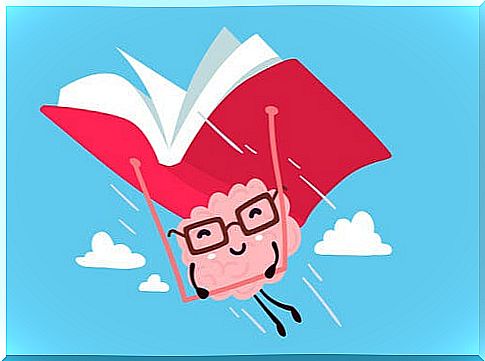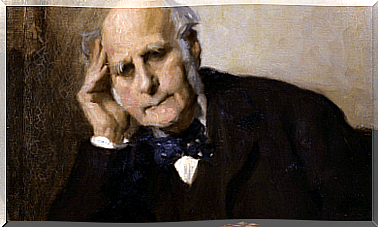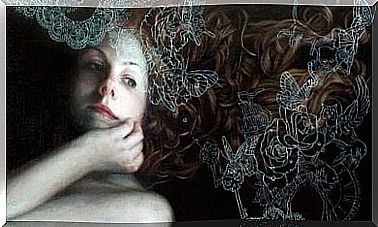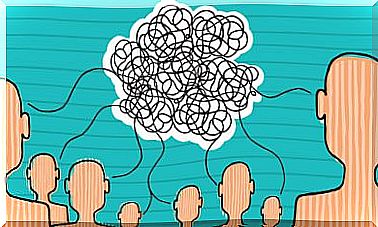The Magical Effect Of Reading On Our Brain

The reading of novels, fiction texts and essays serve as a support to imagine situations, settings and characters. As we go through its pages, we create mental images of faces, dresses, landscapes, spaces and distances. And that is where the magical effect of reading begins on our brain.
Reading, as an activity, is a perfect opportunity to disconnect and relax our internal dialogue, stops reproaches, accusations or cycles of thought about those problems that we cannot solve. All of this is capable of activating many of the brain regions that activate our senses.
Language in the right hemisphere
The neurologist Guillermo García Ribas maintains that there are two aspects that reading facilitates: the decoding of language and symbolic thinking.
Alex Huth is part of the team that has mapped the brain’s semantic system. Surprisingly, he discovered that language is not limited to the left hemisphere, as was previously believed. It seems that it is the production of language that is typical of this area. However, much of the understanding of language appears to occur in the right hemisphere.

Reading in our brain: Activating the mental GPS
Neuroscientist Aidan J. Horner argues that the representation of mental images affects the cortical and subcortical neuronal systems. It also activates a network of grid cells, or grid neurons, in the entorhinal cortex. These grid cells are in charge of spatial location. That is, they make the brain understand its position in space.
They are activated by mental images created from reading the description of characters in an environment. Also when we imagine ourselves in a place, and they do it in the same way that they would do it before visual or auditory stimuli.
These grid neurons show strong theta wave regulation. They are electrical impulses of long amplitude, characteristic related to the reorganization of the brain structure. They are also low frequency waves and some think that they facilitate access to unconscious content.
Theta waves are typical of phases 1 and 2 of sleep in adults. Instead, children spend their waking time in theta wave state during their first years of life. When this occurs during wakefulness in adults, it produces something similar to the state of consciousness achieved after training in meditation or hypnosis.
That is, one of the effects of reading in our brain would be to facilitate the state of consciousness that gives access to the content of the unconscious. At the same time, a reorganization of brain structures and neural networks would occur .
Mirrors to look at
Robert Harris at Emory University performed MRI tests on a group of people during the days it took them to read a novel. The study released amazing results.
The movements that the characters in the novel made activated different brain areas in the readers. The activated areas were the same that would have been activated if they were performing the movements. In addition, an important reinforcement in the neuronal connections of the central sulcus was verified. This organ is linked to the sensations of the body and empathy.

Leaving a mark on the brain
Robert Harris’s experiments yielded collateral results. They discovered a neural imprint left by reading a novel days after it was finished. MRIs were also performed on the same participants days after the reading was completed. The increased connectivity during the reading period was found to be maintained several days later, even though it was no longer being read.
They called this ” activity shadow.” His imprint remains for at least five days after finishing the novel. It even seems that this imprint could be kept longer if we liked the book a lot.
This “shadow of activity” that reading produces in our brain could explain the magic of books. The same magic that allows characters and stories to stay with us even after we have reached the end of the story.








